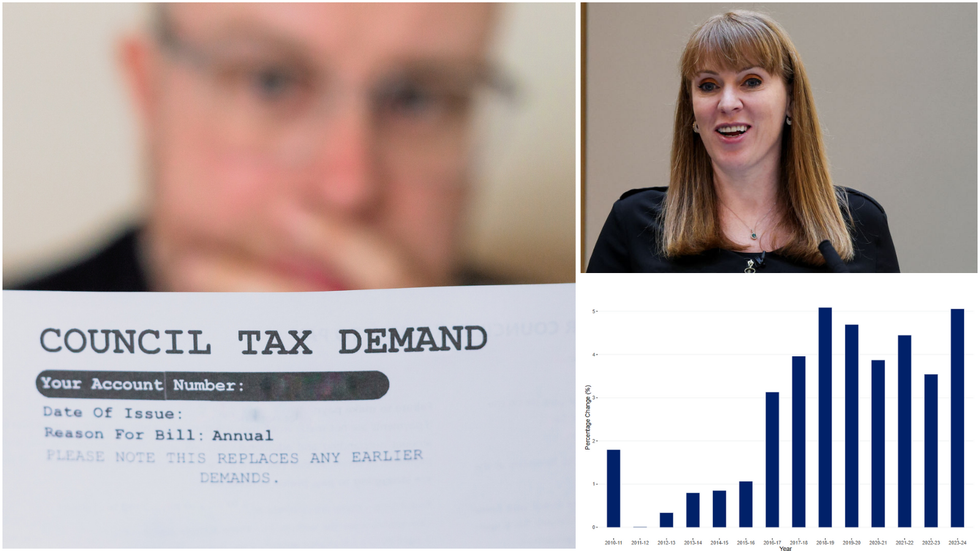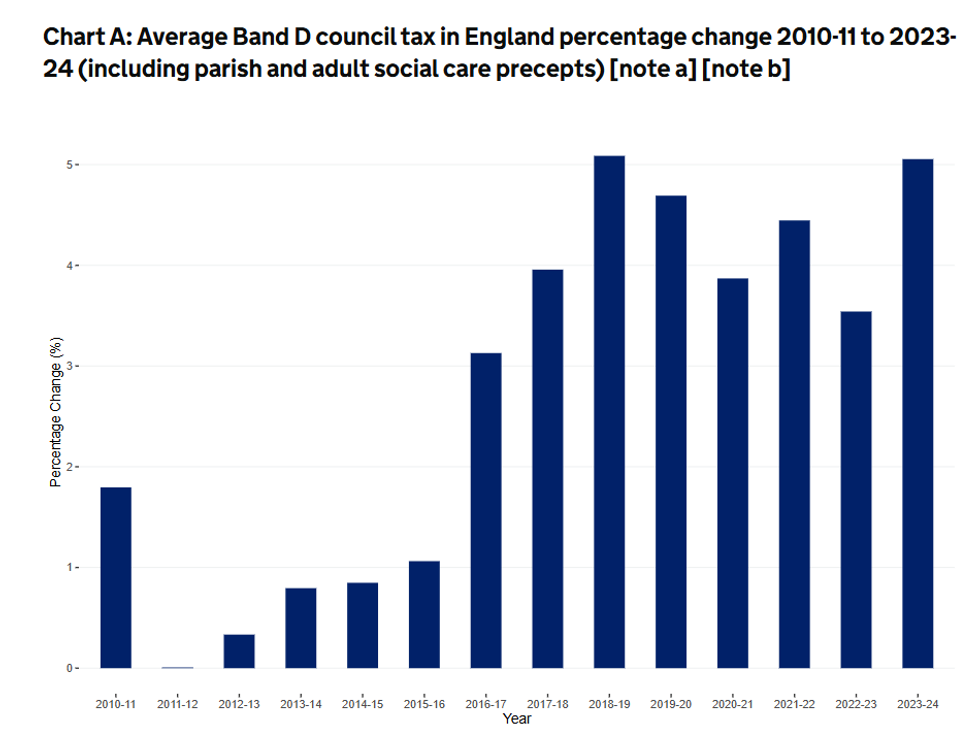MILLIONS to be hit by council tax RAID as rates hikes
GBNEWS
Millions of households in England are facing council tax rises over five per cent
Don't Miss
Most Read
Trending on GB News
Angela Rayner has approved significant council tax increases above the normal five per cent threshold for six councils serving more than two million people.
The move comes as local authorities grapple with financial challenges, with some councils being permitted to raise taxes by up to double the current inflation rate.
Bradford Council has been granted the highest increase at 10 per cent, while Windsor and Maidenhead Borough Council and Newham Council will be allowed rises of nine per cent.
Birmingham City Council, Somerset Council and Trafford Council have all received permission for 7.5 per cent increases.
For a Band D property in Bradford, this could mean an increase of £170, not including additional charges from police and fire authorities.
Some councils had requested even higher increases, with Windsor and Maidenhead initially seeking a 25 per cent rise.
 Over two million Britons face higher than usual council tax hikes as Labour makes 'tough decisions' across UK
Over two million Britons face higher than usual council tax hikes as Labour makes 'tough decisions' across UKGETTY
Rayner said the Government would only approve increases where councils have "comparatively low existing levels of tax and plans in place to protect the vulnerable."
None of the councils received the full amount they had requested, according to the Deputy Prime Minister.
The overall national increase in council tax is not expected to exceed last year's rise of 5.1 per cent.
In a statement to Parliament, Rayner said: "Tough decisions are needed across local government to fix the broken system we inherited.
“These are difficult decisions that Government has not taken lightly. We recognise the importance of limited increases in helping to prevent these councils falling further into financial distress – but we have been clear this must be balanced with the interests of taxpayers."
LATEST DEVELOPMENTS:
The Deputy PM blamed the situation on the previous Conservative administration, stating: "As a result of the 14 years of decline and instability overseen by the previous government, we know there are large numbers of councils in significant financial difficulty."
She added that this legacy has led to "a record number of councils engaging with the Government about support to help them set their budgets."
The financial pressures on councils have been made worse by recent changes to National Insurance contributions, according to the Local Government Association.
Ellen Eaton, vice-president of the Local Government Association, told the House of Lords: "With Labour's increase in employer National Insurance contributions, Local Government Association analysis confirms that the cost to local government will be around £1.7billion next year."
While the Government has provided some additional funding to meet these costs, councils still face a £1.2bn shortfall.
The Government has allocated £502million to help councils manage the impact of increased employer national insurance contributions.
They also announced councils will have access to over £69bn in funding this year, representing a 6.8 per cent increase from 2024-25.
A new "Recovery Grant" worth £600m has been established as an interim measure. The settlement includes £233m for homelessness services and £500m for pothole repairs. Up to £3.7bn additional funding will go to councils with social care responsibilities, including an £880m boost to the Social Care Grant.
A Children's Social Care Prevention Grant will increase to £270m in 2025 and 2026, with investment in prevention set to double to more than £500m.

Council tax rises
GOV.UK
The Deputy Prime Minister added: "Councils deliver vital services across the country - driving growth and local economies and providing a lifeline for those that need it most.
"Through our Plan for Change we are determined to fix the foundations of local government; investing where it is needed, trusting local leaders and working together to deliver growth, better health and social care services and the affordable homes people need."
The County Councils Network (CCN) has warned that the £600m recovery fund will primarily benefit councils in major cities and towns at the expense of county areas.
Barry Lewis, CCN finance spokesperson, said: "More than four in five CCN members say they are in a worse position than before the Autumn Budget and this finance settlement, and one third say their service reductions next year will now be severe."
Seven London councils will need exceptional financial support this year, up from two in 2024-25, requiring support funding to increase from £70m to £430m.







